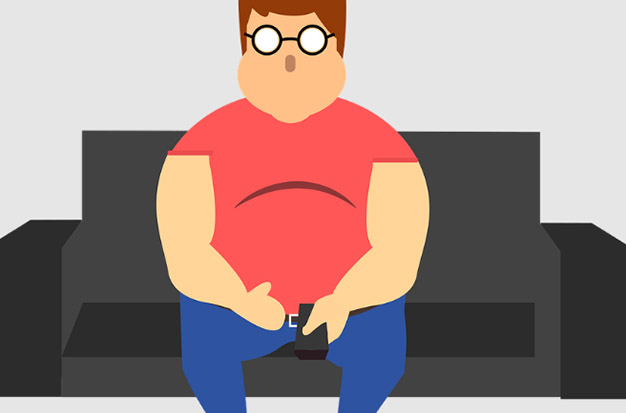Do Muscle Relaxers Cause Weight Gain – Muscle Relaxers Side Effects

It is possible to cause pain, spasms, and stiffness with prescription medications referred to as muscle relaxers. The central nervous system is affected by muscle relaxants, providing the user with brief relief. It’s important to keep in mind that muscle relaxant side effects can be dangerous for the user over time, despite the fact that these drugs might seem to be safe at first. Blood pressure, bowel movements, and sleepiness are all side effects of muscle relaxants. Let’s investigate.
Weight Gain From Muscle Relaxants?
A muscle relaxant’s side effects can include weight gain. Although it has no direct impact on weight, the injury’s decreased mobility and the side effects of the medications may cause people to eat more because they are less active to help their bodies relax.
The medication slows down the body’s process which causes the person to gain weight.
The Uses Of Muscle Relaxers
Back pain and other muscle injuries are frequently treated with muscle relaxants. When a muscle is injured, it twitches and spasms, causing pain and further damage to the muscle. Because they enable the muscle to stop contracting and begin healing, muscle relaxants lessen this response to injury. You can exercise the injured muscles, keep up your fitness, and avoid gaining weight from inactivity by using these medications.
Function of Muscle Relaxers
Sedatives include muscle-relaxing drugs such as carisoprodol, cyclobenzaprine, naproxen, and diazepam. Sedatives are CNS depressants that have an effect on your body by reducing brain activity and relaxing skeletal muscles. Muscle relaxants and other sedatives can make you drowsy, impair your thinking, and less interested or capable of making wise dietary decisions. If the drug is used to treat a chronic pain condition, older adults may gain a lot of weight because they are particularly vulnerable to cognitive impairment from these drugs.
Sedatives And Weight Gain
Muscle relaxants slow down many of bodily processes because they depress your central nervous system. For acute conditions, these medications are typically prescribed for a brief period of five to seven days. Short-term use of these drugs may result in a 2–3 lb weight gain. as you reduce your activity to heal from your injury. As your overall level of physical activity continues to decline, long-term use or abuse of these drugs can lead to more noticeable weight gain.
Muscle Relaxers For The Short Term
Muscle relaxants are an effective short-term treatment for muscle injuries, along with painkillers and physical therapy. Faster healing times and minimal risk of adverse effects, such as weight gain, can be achieved by adhering to your primary care provider’s recommended course of treatment for your injury. Be aware that there is a risk for weight gain and that there is a chance of addiction if a longer-term course of muscle relaxant therapy is required.
Do people who use muscle relaxants gain weight? Despite the fact that these pills have no direct impact on weight, they do cause drowsiness and a decrease in activity. If this is combined with decreased physical activity as a result of an injury, it can result in an increase in body mass over time. As a result, it is true that muscle relaxants cause weight gain. When a person has a serious injury and is in a wheelchair or on bed rest, this is more typical. OTC muscle relaxants for back pain, particularly topical formulations, are not known to cause weight gain.
Common Side Effects Of Muscle Relaxers
Regular use of muscle relaxants may result in certain side effects, including:
Constipation
Can muscle relaxants lead to constipation? Yes, patients may notice a change in their bowel movements once they start taking these medications. This is because constipation is a side effect of muscle relaxants.
Allergic Reactions
This side effect is typical of all medications, not just the typical prescription muscle relaxants. If an allergic reaction is noticed, even a mild one, it is advised to stop using this medication. Chest tightness, itching, and throat swelling are common allergic reactions.
These are the most frequent and least harmful muscle relaxant side effects that a user is likely to encounter in the short term. On the other hand, prolonged use of these medications may result in serious issues for the user.
Dizziness
Do muscle relaxants make you sleepy? Yes, dizziness is a typical side effect of muscle relaxants. One may experience fatigue and sleepiness after taking this medication. This statement is particularly accurate when referring to potential side effects of skeletal muscle relaxants, which have an immediate negative impact on the nervous system. Drowsiness may also be a sign of a muscle relaxant overdose. It is suggested that you dial 911 if a significant dose was consumed.
Dry Mouth
Dry mouth is another typical side effect of muscle relaxants. Due to the lack of saliva after taking these pills, the user might feel parched or dry in their mouth. Xerostomia is the term used to describe this condition.
Addiction
Addiction is arguably the most dangerous risk connected to using this type of drug. The main factor contributing to their potential abuse is the sedative effect of these pills, which results in numbness and relaxation. Carisoprodol, cyclobenzaprine, and baclofen are a few examples of addictive muscle relaxants.
When taken for an extended period of time, they can physically rewire the user. People who become addicted to these pills may require specialized treatment for addiction, such as drug detox and rehabilitation programs.
Can I Taking Muscle Relaxers While Pregnant
The use of medications is thought to be contraindicated during pregnancy and breast-feeding. Most doctors advise against taking any medication in these situations, which is understandable to some extent given that it is difficult to predict how a drug will interact with the body or whether any side effects will manifest. Additionally, different people respond to medications in different ways.
Conclusion
Known as Flexeril, the muscle relaxant. The medication is beneficial for people with any muscle problems. Studies suggest that the medication may be to blame for your body gaining weight, as well as for the person taking it.
Prior to making any decisions based on information, always consult a physician. Your doctor is the best qualified to answer all of your questions and will support you when you need it.
*Find More Muscle Relaxation Methods Here!
- How to Relax Your Tight Sphincter Muscle with Useful Tips
- How Often Should I Relax My Hair & How to Relax Hair
- How to Have a Relaxing Weekend – Enjoy Yourself
- How Long Do Muscle Relaxers Stay in Your System
- Why Does My Fat Itch When I Exercise – Common Causes
- How to Reduce Your Tongue Tension – Simple Exercises
- How to Relax During Sports – Simple Sport Psychology Techniques
- How to Relax Your Facial Muscles in Easy Ways
- How to Relax Chest Muscles After Breast Augmentation?
- Can a Chiropractor Prescribe Muscle Relaxers?
- Why Is My Waist Turning Bigger With Exercise?
- How Does Visualization Promote Relaxation and Stress Reduction?
- 5 Reasons Entrepreneurs Are Uncomfortable During Vacations
- How Might Regular Cardiorespiratory Exercise Affect Hypertension?
- How to Relax Throat Muscles Anxiety?
- How to Relax Your Jaw – The Best Ways to Relax Your Jaw









